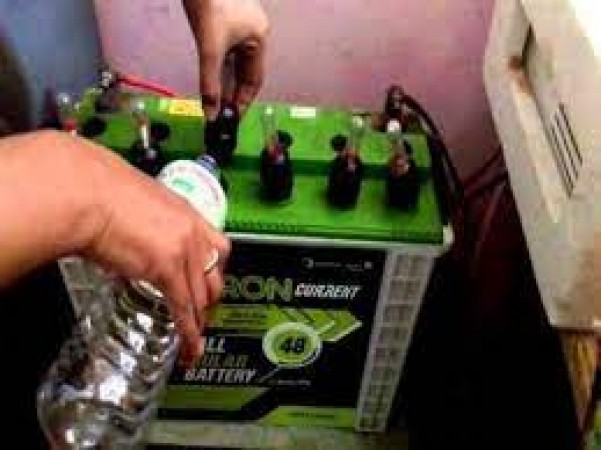
Inverter batteries are essential components of power backup systems, commonly used in homes, offices, and industries. While they play a crucial role in providing electricity during power outages, they require proper maintenance to function efficiently. One critical aspect of maintenance is ensuring that the battery is topped up with the right type of water. However, pouring tap water into an inverter battery can have severe consequences that could compromise its performance and longevity.
Chemical Composition of Tap Water
Tap water typically contains various minerals and impurities, including calcium, magnesium, iron, and chlorine, among others. While these minerals are generally safe for drinking and everyday use, they can wreak havoc on the delicate chemistry inside an inverter battery.
Impact on Battery Performance
When tap water is poured into an inverter battery, the minerals and impurities present in the water can react with the battery's electrolyte solution. This reaction can lead to the formation of sediment and corrosion within the battery, which can impede its ability to charge and discharge effectively. Over time, this buildup can cause irreversible damage to the battery plates and reduce its overall lifespan.
Increased Risk of Short Circuits
Another significant risk associated with pouring tap water into an inverter battery is the potential for short circuits. The minerals and impurities in tap water can create conductive pathways between the battery's terminals, leading to unintended electrical connections. These short circuits can result in overheating, battery failure, or even fire hazards, posing a significant safety risk to both property and individuals.
Loss of Warranty Coverage
In many cases, pouring tap water into an inverter battery can void its warranty coverage. Most manufacturers specify the type of water or electrolyte solution that should be used to maintain the battery properly. Deviating from these guidelines by using tap water can absolve the manufacturer of any responsibility for damages or malfunctions, leaving the owner to bear the full cost of repairs or replacement.
Best Practices for Battery Maintenance
To ensure the optimal performance and longevity of an inverter battery, it's essential to follow best practices for maintenance, including:
Use Distilled Water: Always top up the battery with distilled water, which is free from minerals and impurities that can harm the battery.
Regular Inspections: Periodically inspect the battery for signs of corrosion, leakage, or damage, and address any issues promptly.
Follow Manufacturer Guidelines: Adhere to the manufacturer's recommendations regarding battery maintenance, including the type of water to use and the frequency of topping up.
Proper Ventilation: Ensure that the battery is installed in a well-ventilated area to dissipate heat and prevent the accumulation of explosive gases.
Pouring tap water into an inverter battery can have detrimental effects on its performance, safety, and longevity. To avoid these risks, it's crucial to use distilled water and follow proper maintenance practices as recommended by the manufacturer. By taking proactive measures, users can ensure that their inverter batteries remain reliable sources of power backup for years to come.
THESE Morning Drinks to Help Shrink Your Belly, Try Now
You can reduce your weight by drinking the water of this fruit